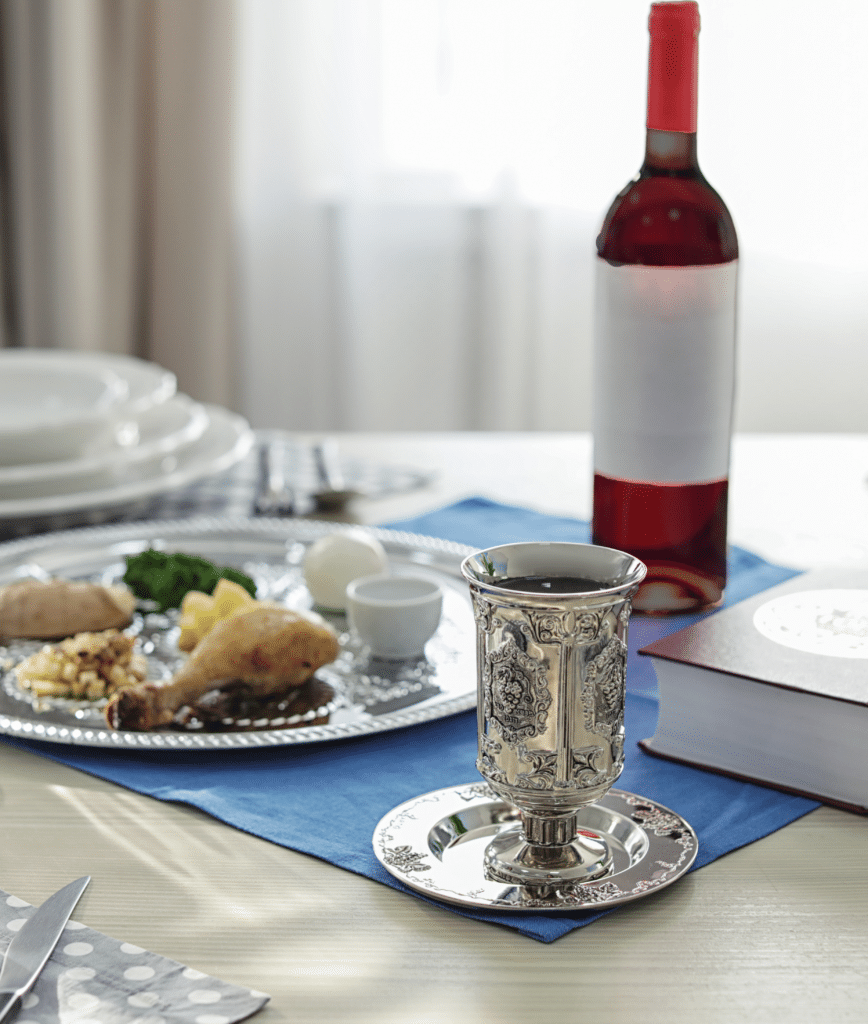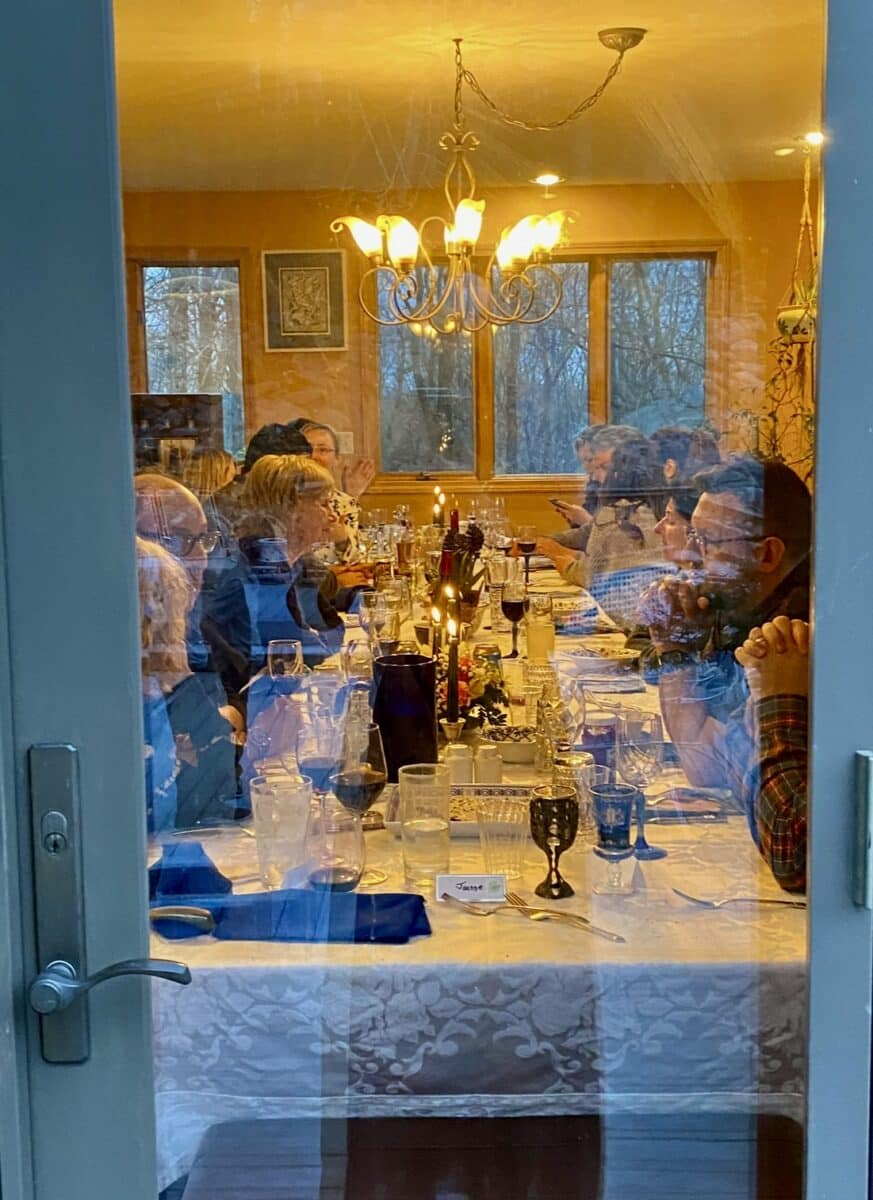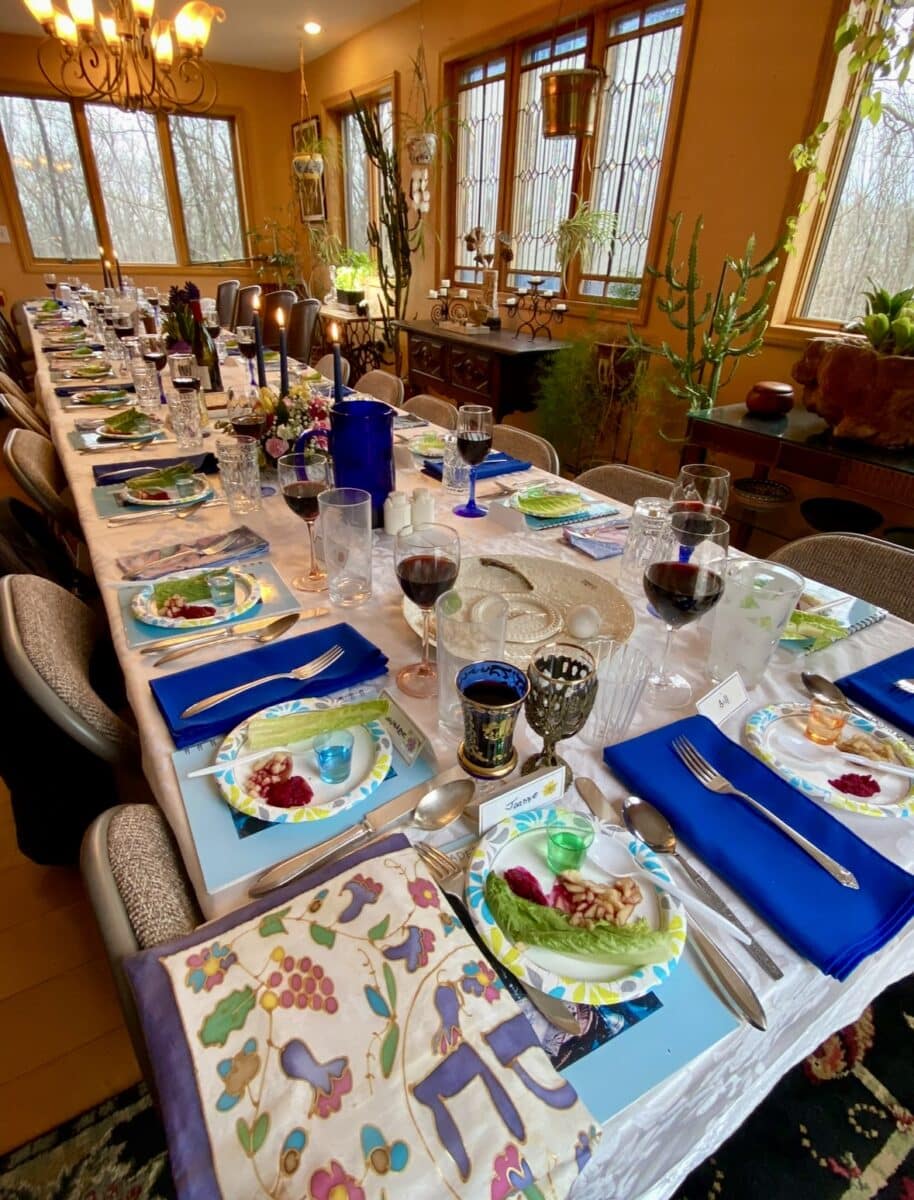If the door is open and the welcome is sincere, it will have been enough.
A Cup for Elijah
There’s always an extra cup of wine on the Passover Seder table, said to be waiting for Elijah, the Messiah, when he returns to the world. At one point during the traditional ceremony, someone goes to the front door and opens it to see if Elijah is there and to welcome him in. I’ve always wondered: What if Elijah – or anyone at all, a stranger – were standing there?

No One Told Me I Wasn’t Jewish
For three summers, when I was six, seven, and eight, my parents loaded our family of five into our station wagon and drove from New York City to a Jewish bungalow colony in the hills of northern New Hampshire. My father, a public high school teacher during the school year, worked as a camp counselor, teaching science, those summers. Whole families spent their summers in rustic but well-kept bungalows – we lived in one – and their children, as well as others from town, went to the colony day camp.
I was made to go to camp but I didn’t like being told what to do. I hated making lanyards and weaving potholders and I evaded group activities whenever I could. My favorite thing was to gather large bunches of ragweed to put in vases, which my parents made me keep outdoors. One blissful sunny afternoon I snuck alone into a nearby field and collected a cardboard box full of grasshoppers, all of which hopped out of the open box as soon as I brought it into our house.
Everyone was Jewish. We sang Hava Nagila around the campfire and danced the Hora and everyone used expressions that I now know are Yiddish. At the age of six I picked up oy vey iz mir! (“oh, woe is me!”) from the adults gossiping in their screened porches. It wasn’t until I went to first grade in Catholic school that I realized my family must not be Jewish. By then I knew what a mensch was (a person of honor, a good person) and what a schmatta is (old clothing you don’t wear in public). But it wasn’t until I was thirteen that I went to my first Passover Seder.
Dayenu
The Hebrew word dayenu means, loosely, “It would have been enough.” The song Dayenu, traditionally sung by everyone at the table during a seder, is about gratitude for the parts of a whole – if God had granted one kindness and not another, it still would have been enough.
When I was thirteen and my family moved from the Bronx to Manhattan, my best friend in our new building invited me to her family’s Passover dinner. This ceremonial dinner, known as a seder, is a Jewish ritual feast marking the beginning of Pesach (Passover), the holiday celebrating the story of the Exodus of Israelites from slavery in ancient Egypt. My favorite parts of the Seder, then and now, have been the singing of Dayenu and the sentiment behind it, and the opening of the door for Elijah. Has anyone ever, hungry and alone, stood outside a home with seder celebrants inside, and tentatively knocked on the door, rung the doorbell, waited for the door to open in welcome? If it is Elijah, who will know, and gladly hand him the cup of wine that has been waiting for him? I have thought about the dozens of seders I have attended, now with my own family, and I have thought about the extra glass of wine, and the open door, and Elijah.
Cooking for Elijah
I cook for Elijah with every meal. It never hurts to have leftovers, anyway. And I especially keep Elijah in mind when I’m planning a dinner party. If eight are coming, I buy nine lamb chops, nine lobsters, ingredients for nine salads. If I have eight matching plates I’ll find a ninth similar one to set at the head of the table if needed.
I want bounty, but not waste. The extra food will be a second helping for someone who would like more, or lunch the next day, or chopped and put into a soup. More than that, it is a welcoming extra portion for unexpected company, the friends’ daughter in from school, someone’s brand-new plus-one. It’s not really about the quantity of food, though. If the door is open and the welcome is sincere, it will have been enough. ![]()

